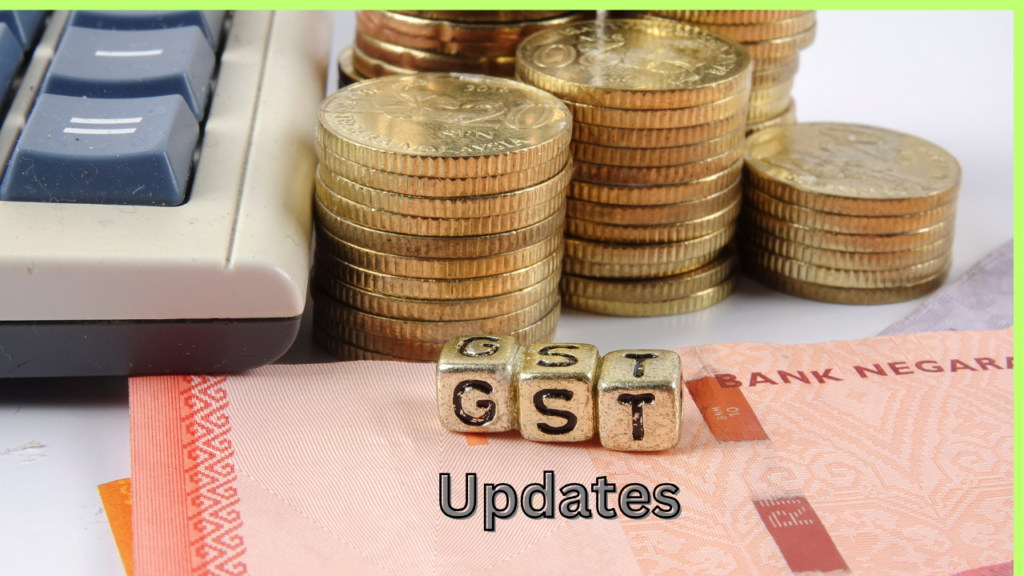The Central Board of Indirect Taxes and Customs (CBIC) has issued clarifications regarding the treatment of vouchers under the Goods and Services Tax (GST) regime. The purpose is to address ambiguities faced by trade and industry and ensure uniformity in implementation.

Key Issues Addressed
- Classification of Transactions in Vouchers: Determining whether vouchers constitute a supply of goods, services, or neither.
- GST Applicability on Voucher Trading: Evaluating GST implications for distributors, sub-distributors, and agents.
- Treatment of Additional Services: Addressing services like advertisement, marketing, and technology support provided alongside vouchers.
- Unredeemed Vouchers (Breakage): Clarifying GST treatment for unutilized vouchers.
Issue 1: Transactions in Vouchers as Goods, Services, or Neither
Relevant Legal Provisions:
- Definition of Goods and Services (Sections 2(52) and 2(102) of the CGST Act): Excludes money and securities.
- Definition of Voucher (Section 2(118)): Instrument obligating acceptance as consideration for goods or services.
- Definition of Money (Section 2(75)): Includes instruments recognized by RBI when used for settling obligations.
- Actionable Claims (Section 2(1) and Schedule III): Treated as neither supply of goods nor services unless specified (e.g., betting, gambling).
Analysis:
- Vouchers as Pre-paid Instruments Recognized by RBI:
- Regulated by the Payment and Settlement Act, 2007.
- If a voucher qualifies as “money,” transactions in such vouchers are excluded from the scope of GST.
- Vouchers Not Recognized as Money:
- Considered actionable claims as per Section 2(1) and Schedule III.
- Such transactions are also treated as neither supply of goods nor services.
Clarification:
Transactions in vouchers, irrespective of their recognition by RBI, are not supplies of goods or services. GST applies only to the underlying goods/services purchased using the vouchers.
Issue 2: GST on Voucher Trading
Distribution Models:
- Principal-to-Principal (P2P) Basis:
- Distributors purchase vouchers at a discount and sell them to end customers, earning a trading margin.
- As trading in vouchers is not a supply of goods or services, no GST is levied on such transactions.
- Agency/Commission Basis:
- Distributors act as agents and earn a commission for services rendered.
- Commission income is considered a supply of services and is taxable under GST.
Case Study:
- Scenario 1: A distributor buys vouchers worth ₹1,000 at ₹800 and sells them to customers at face value. The trading margin of ₹200 is not subject to GST.
- Scenario 2: A distributor markets vouchers for a principal on a 10% commission. The commission is taxable under GST.
Issue 3: GST on Additional Services
Additional Services:
Includes advertisement, co-branding, marketing, customization, technology support, etc.
Treatment:
- Fees charged for such services are taxable as supply of services under GST.
- Example: If a distributor charges ₹50,000 for marketing services, GST is applicable at the rate prescribed for such services.
Issue 4: GST on Unredeemed Vouchers (Breakage)
Analysis:
- Nature of Breakage:
- Unredeemed vouchers do not result in supply of goods or services.
- The amount attributable to breakage is accounted for as income but does not involve an underlying supply.
- Legal Position:
- No GST is applicable as breakage does not constitute consideration for any supply.
- Circular No. 178/10/2022-GST clarifies that there must be an agreement to act or forbear for a taxable supply to exist.
Practical Application:
- A voucher issuer records ₹50,000 as breakage income for unredeemed vouchers. Since no goods/services are supplied, GST is not applicable.
Practical and Simplistic Basis
- Trade Model: Distributors should identify their role (principal or agent) for proper GST treatment.
- Documentation: Maintain agreements clarifying obligations and commissions to ensure accurate GST reporting.
- Breakage Accounting: Clearly separate income from unredeemed vouchers to avoid incorrect GST liabilities.
Realistic Implications
- Uniform Interpretation: Helps businesses avoid litigation and reduces compliance costs.
- Tax Neutrality: Ensures GST applies only where goods/services are supplied, maintaining fairness in taxation.
Conclusion
The CBIC’s clarification ensures consistency in GST application for voucher-related transactions. Businesses must carefully evaluate their role, transaction type, and related services to comply with GST provisions effectively.